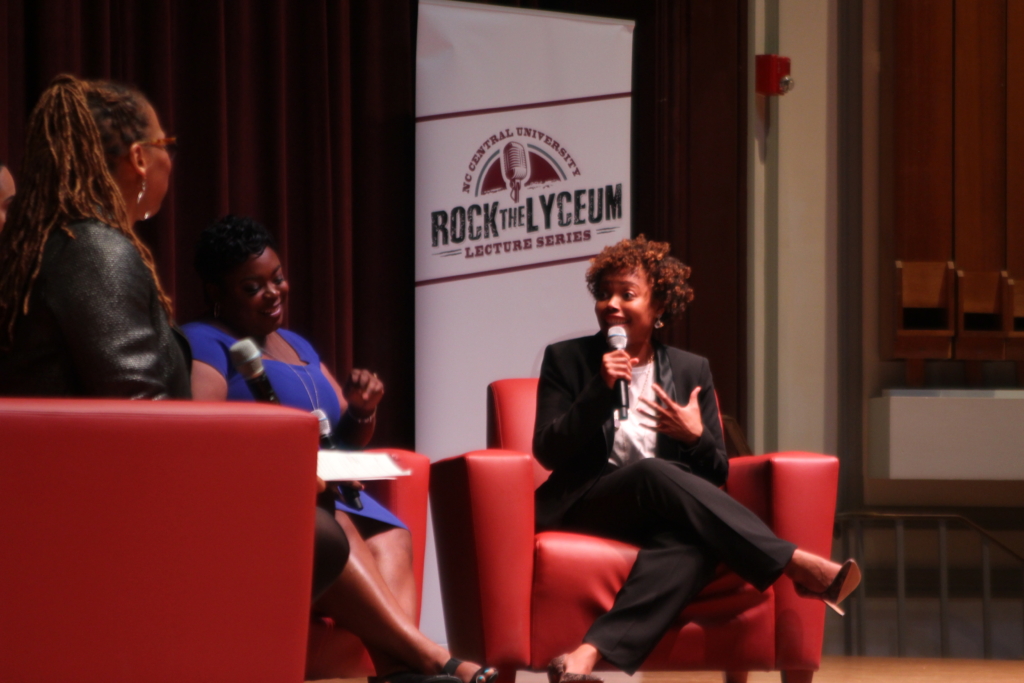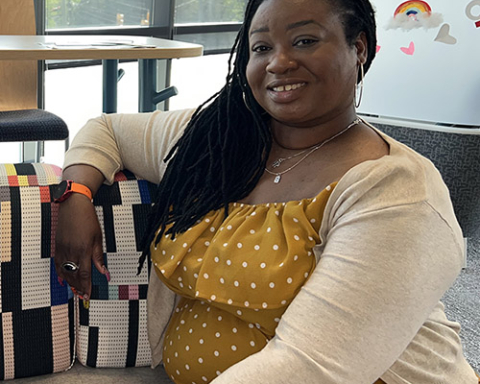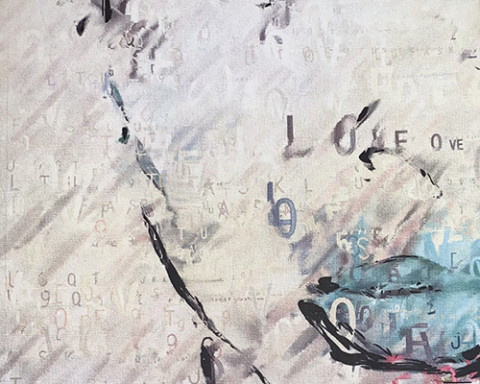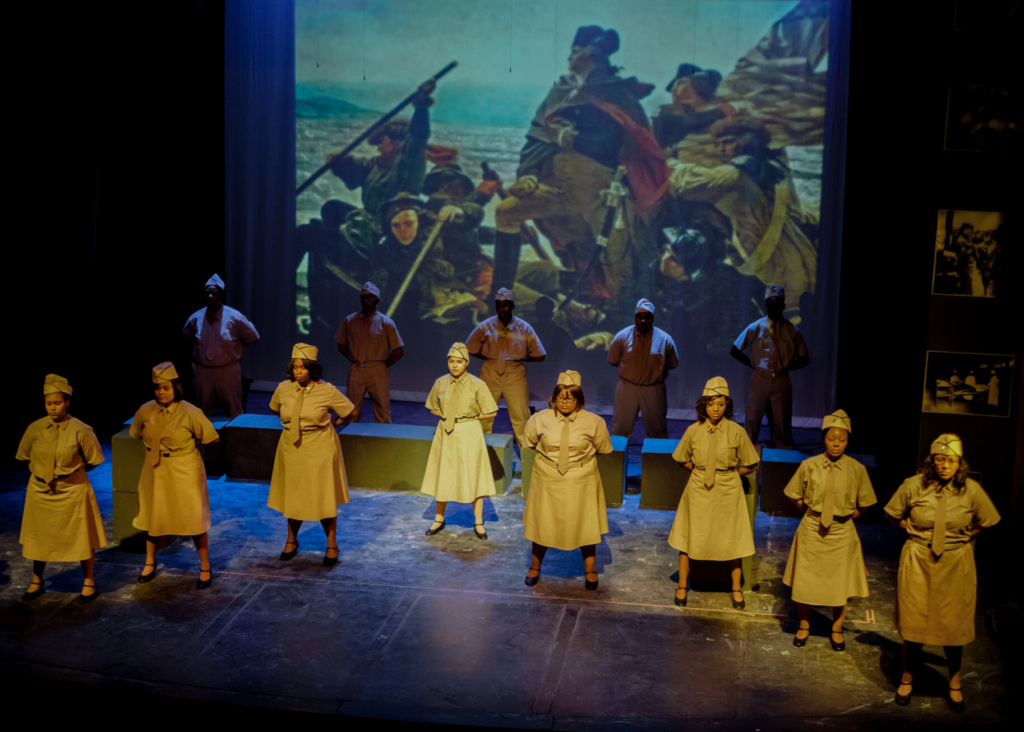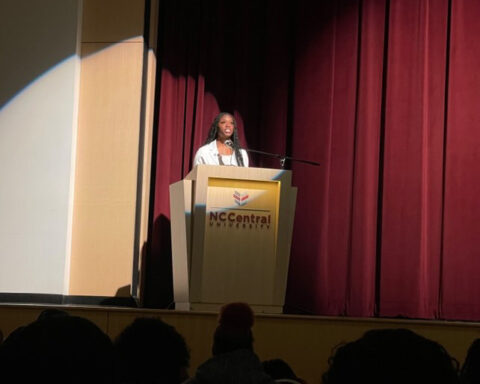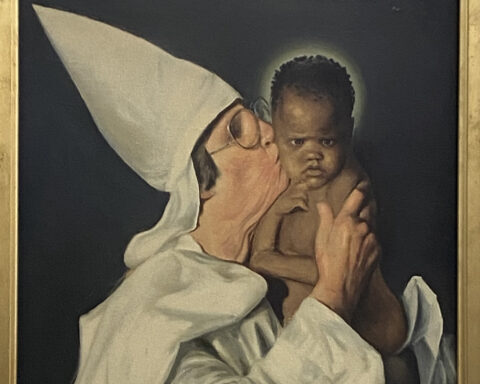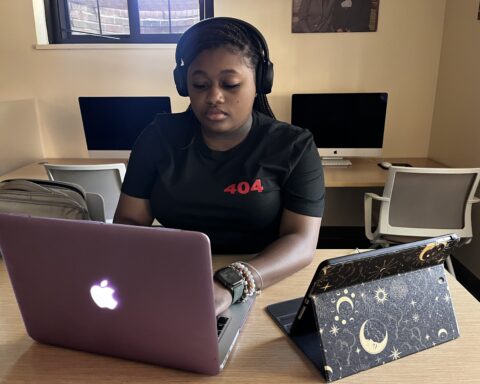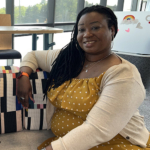In partnership with the Rock the Lyceum lecture series and University College, N.C. Central University’s Women’s Center held their 6th annual “I’m Every Woman” symposium on March 27 in the B.N. Duke Auditorium.
The auditorium was filled with an audience who was eager to listen to the panelists share their experiences as black female media professionals.
The keynote speaker of the symposium was Political Commentator and Analyst Angela Rye. According to an NCCU newsletter, Rye has offered her commentary on a variety of media platforms such as CNN, MSNBC, BET, NBC, ABC, and HBO.
Along with Rye, the symposium included other panelists such as Network Producer Shayla Hebron and Radio One Raleigh Promotions Director Tracey Mosley.
Shauntae Brown White, NCCU’s Women’s & Gender Studies Coordinator, acted as the moderator for the panel discussion and introductory speaker. White not only introduced the women who would be presenting on the panel, she also gave a short presentation in the theme of the symposium entitled, “Media Images of Black Women.”
During this presentation, White shared examples of the “controlling images” of African American women in the media and her personal experiences with the media’s perception of them.
“Controlling images are designed to make racism and other forms of social injustices appear to be normal, “ White explained. “I want to connect to how the constant mirage of these controlling images impact society’s public perception of black women collectively.”
Following White’s presentation, the panel discussion began with her asking the panelists a series of questions regarding how they started out in their careers, black women’s role within the media, and how to find one’s voice.
“If you are starting out as an intern, nothing can take the place of hard work,” Mosley said in regards to starting out in her career. “So work hard and come ready.”
White also asked questions regarding how the panelists deal with the obstacles they have faced within their careers.
“Black women have historically been conquerors and waymakers.” Rye said. “I definitely don’t think that there is any obstacle that is placed in our way that we can’t overcome.”
Rye also added her input on finding one’s voice by explaining the importance of being “set free” from the world’s perceptions of black women.
“I think that at some point we have to get completely delivered, set free, and liberated from what people think,” Rye emphasized. “You know the power of your voice, and as long as you know that, nobody can silence you.”
White then added onto Rye’s statement about the importance of one’s voice.
“Just remember that your voice is important and that it matters,” White emphasized. “Your voice and opinion is just as important as somebody else’s.”
At the conclusion of the media-themed symposium, the audience gave a satisfied round of applause and enthusiastically chanted “I’m every woman” in unison with the panelists.
“There are so many levels to us, and we are not seeing that,” Hebron emphasized in regards to black women’s role in the media. “I believe that if you stand for nothing, then you will fall for anything.”

